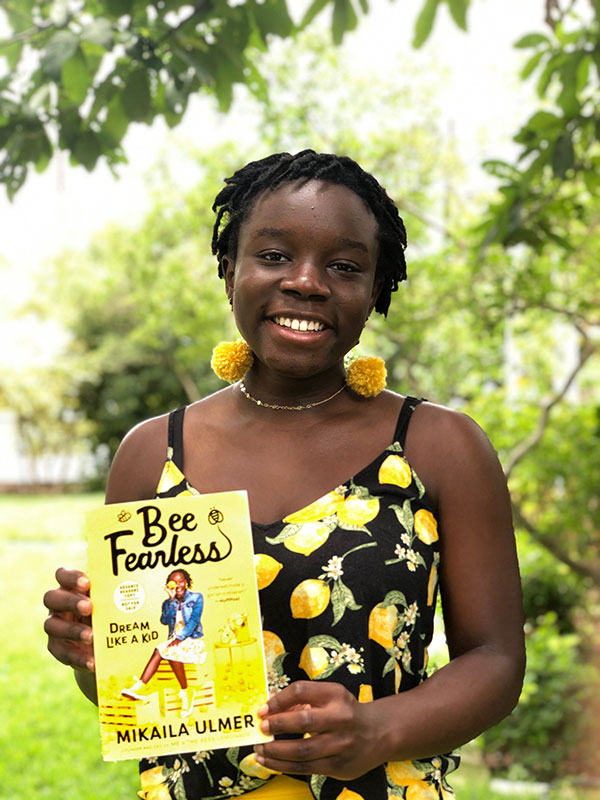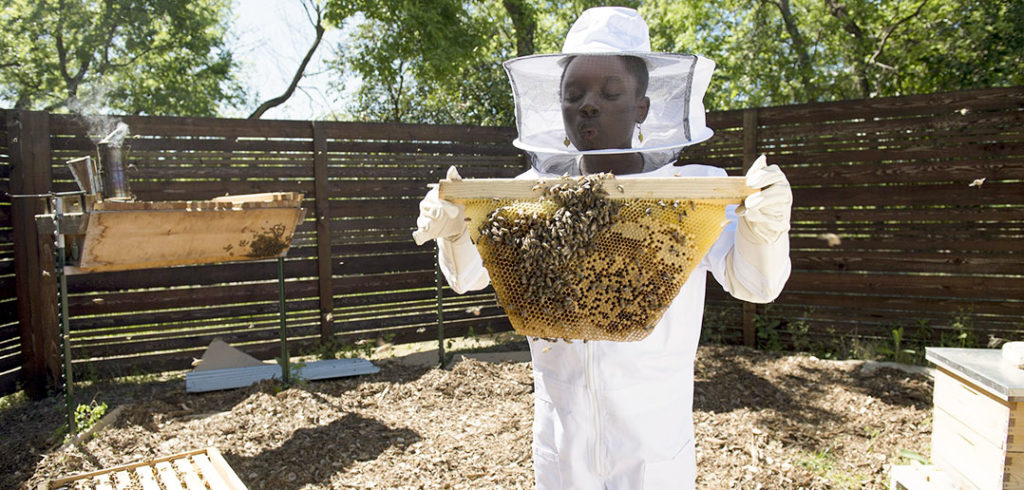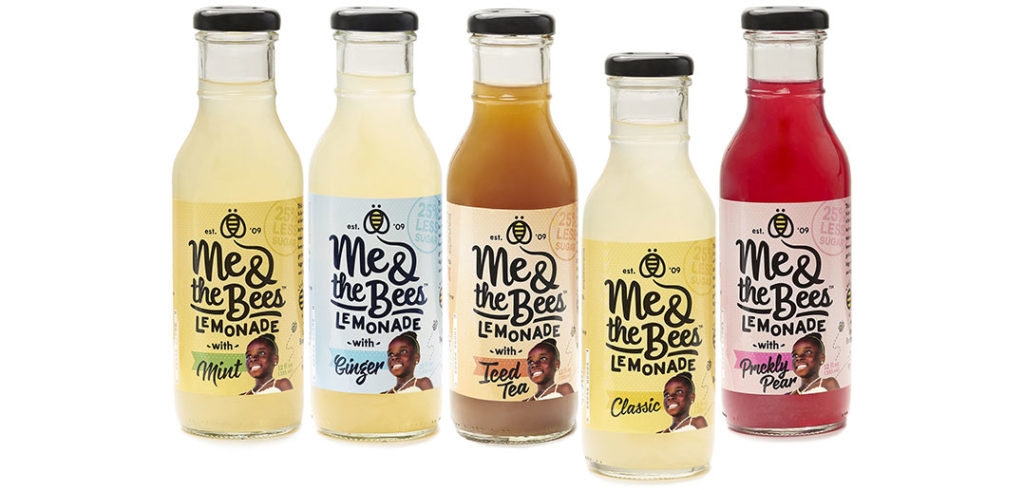The 15-year-old CEO Mikaila Ulmer shares her entrepreneurial journey, details about her new book and social responsibility.
by Ariana Arredondo, Photos courtesy of Me and the Bees Lemonade
With sticky fingers, 4-year-old Mikaila Ulmer stirred a pitcher of lemon juice, water and honey. The task was simple but her goal significant: Save the bees with proceeds from her lemonade stand. The recipe wasn’t fine-tuned but Ulmer was just getting started. Since then, her lemonade has gone from a stand on the sidewalk to grocery store shelves across the country.
Now 15, Ulmer is the founder and CEO of lemonade company Me and the Bees Lemonade and on Aug. 18, she’ll add author to her list of accomplishments. Her memoir, Bee Fearless: Dream Like a Kid, details her journey of entrepreneurship and teaches readers financial literacy and social responsibility.
Austin Woman chatted with Ulmer about quarantine, her book, minority representation in business and the Black Lives Matter movement.

Austin Woman: How has it been being both a teenager and a businesswoman during quarantine?
Mikaila Ulmer: It’s two roles, so, for business, it’s figuring
out how to adapt my company to still thrive: keeping my employees safe, allowing them to work from home, trying to find new stores to carry the product, focusing on e-commerce.
And then, as a teen girl, a 15-year-old, it’s keeping in contact with my friends, maybe planning a 6-foot apart picnic or something or doing Zoom karaoke. So, it’s hard; it’s a big change.
AW: What inspired the title of your memoir, Be Fearless: Dream Like a Kid?
MU: Dream Like a Kid was inspired by my speech [when]I introduced President Obama at the United State of Women Summit. The speech was about why it’s important to dream like a kid because when kids dream, they dream big; they don’t think of the obstacles or things that come in the way of achieving that dream. And then I realized, “Hey, that’s really closely associated with fearlessness, going out there to achieve your goals and that’s such a huge part of my company.” I was pretty much like, “Who would have thought that a little girl would be able to change the world with a lemonade stand?” So that’s where it came from, and I really want others to see how far dreaming like a kid can get you when it comes to business or pretty much just being a regular human being.
AW: What are some of your goals for the future?
MU: I would like to continue coming up with flavors and make it the No. 1 lemonade in the country. That would be pretty cool. And then, another one is to hopefully become an investor or someone who supports other minority-run companies. Because, for me, funding was the hard part of growing the company. So, I think being able to support and provide mentorship, based on what I’ve learned in my experience, will be really helpful whether [it’s for] kid entrepreneurs or woman-owned businesses or minority-run companies. I think that would be great and a huge help.
AW: Why do you think it is so important to support other minority-run companies?
MU: Statistically, we get less funding. [As a] female and African American, you get a smaller chunk of investments. I just think that the large businesses should be representative of the population. And there’s not enough large woman-owned or African American-owned businesses which is why I think there’s such a big push for people to support Black-owned businesses right now.
AW: How have you been using your platforms to support other businesses? Did you go to any of the protests?
MU: I think that for me as an African American female, it’s really important to protest but going a little further, it’s been hard for me to figure out what to say. Mainly because I’m so angry, and pissed off about what’s going on, but I want to spark action and change. So, for me, that means signing petitions, supporting Black-owned businesses, writing letters to people who I think are trailblazers in the movement.
I have not been a part of any protest because I have friends who protested and they were like, “It was a completely peaceful protest and then one thing happened and police started throwing tear gas and rubber bullets.” So, I personally don’t feel safe protesting but that doesn’t mean that you can sit and watch and do nothing because there are so many other great ways that you can help. So, one is saying what I think of the situation. But it’s also shining a light on Black-owned farms, Black artists, movie makers, authors. [It’s] supporting the community because, in some ways, our community is the only thing we have. So, trying to bless those others who also may be struggling just like [I was] to get funding.
Learn more about Me and the Bees.



